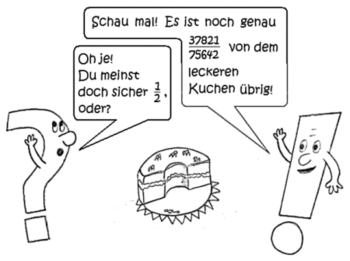6b 2013 14: Unterschied zwischen den Versionen
(→Exercises) |
(→Text Production) |
||
| Zeile 33: | Zeile 33: | ||
== Text Production == | == Text Production == | ||
| − | + | PICTURE STORY | |
| − | + | You can start your story with "once upon a time" (bei Märchen, Legenden) | |
| − | + | ||
| − | + | ||
| − | + | In the beginning you should answer the questions: WHERE? WHEN? and WHO? | |
| − | ''' | + | ''Once upon a time there was a girl named Marian and she lived in a castle in Nottingham during the Middle Ages'' |
| − | + | Then you tell the story. | |
| − | + | Tipps: | |
| − | + | *Verbinde die Sätze inhaltlich mit Connectives (and, but, or, because, then, after that, so etc.). Vermeide es, Sätze mit unterschiedlichen Inhalten einfach aufzulisten. Der rote Faden deines Textes soll erkennbar sein. | |
| − | + | *Achte auf die Groß- und Kleinschreibung: Eigennamen (z.B. Robin Hood), Nationalitäten (z.B. France, French), Schulfächer (z.B. History) und "I" (=ich) musst du groß schreiben. | |
| − | + | *Durch die Verwendung von direkter Rede ("....")kann man den Text oft etwas auflockern | |
| − | + | * Wenn man das erste Mal etwas erwähnt, sollte man diese mit dessen Namen bzw. Bezeichnung tun. Danach kann man den Begriff durch ein Personalpronomen ersetzen. (z.B. ''Marian loved Robin Hood and she often went to Sherwood Forest to see him.'') | |
| − | + | ||
| − | |||
== Vocabulary == | == Vocabulary == | ||
Version vom 14. Januar 2014, 16:11 Uhr
|
Englisch
Text ProductionPICTURE STORY You can start your story with "once upon a time" (bei Märchen, Legenden) In the beginning you should answer the questions: WHERE? WHEN? and WHO? Once upon a time there was a girl named Marian and she lived in a castle in Nottingham during the Middle Ages Then you tell the story. Tipps:
VocabularyFind the correct ENGLISH word for these explanations (You can find the correct answers on the bottom!): a) It an orange vegetable in which people put candles on Halloween. b) Opposite of light. c) A person which is dead but still "lives". d) When you talk to God, you say a ..... e) It's sweet and children usually like it (American word). f) Singers use it so there voice is louder than normal. g) It the language the Romans spoke. ExercisesNEW
Subject or object of the relative clause
Lösungen a) It an orange vegetable in which people put candles on Halloween = pumpkin b) Opposite of light= dark(ness) c) A person which is dead but still "lives" = ghost d) When you talk to God, you say a .....= prayer e) It's sweet and children usually like it (American word). = candy f) Singers use it so there voice is louder than normal. = microphone g) It the language the Romans spoke. = Latin
|
|
Mathematik
|


